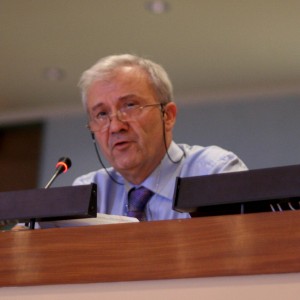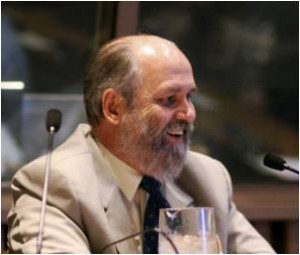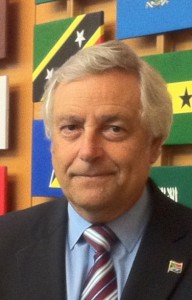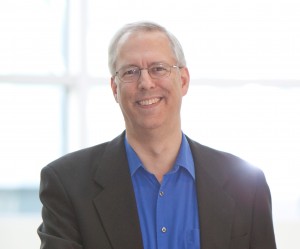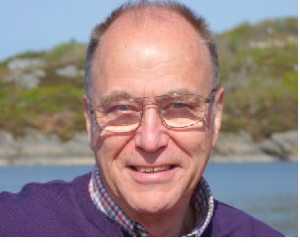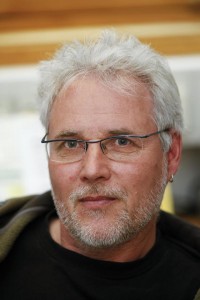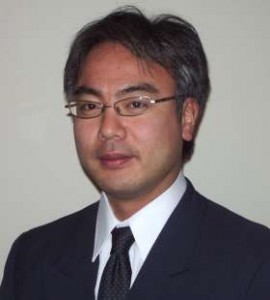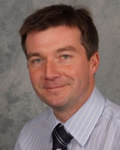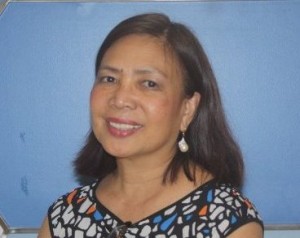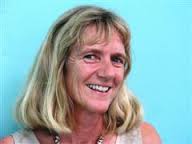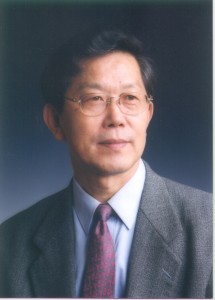Members of the Fisheries Expert Group (FEG)
The IUCN Fisheries Expert Group consists of a limited number of senior fisheries experts from around the world. FEG Members are selected by its Bureau on the basis of expertise in the following disciplines:
- Bio-ecological, technological and socio-economic aspects of fisheries and aquatic ecosystems;
- Implementation of the Ecosystem Approach to Fisheries (EAF);
- Fishing operations.
FEG draws its expertise widely from fisheries and marine ecosystem experts in public service, academia, the private sector (including the industry itself), and NGOs.
The Experts participate in their individual capacities, independently of any institutional affiliations.
FEG Bureau
Chair: Serge M. Garcia, Director (retired), FAO Fisheries Management Division.
Contact: grcsgm@gmail.com
Dr. Serge Michel GARCIA is French, born in Algeria in 1945. He holds a Doctorate in Sciences of the University of Marseille (France, 1976) and specialized in shrimp population dynamics and tropical fisheries management. He worked in West Africa from 1968 to 1979 for the French Institute of Research for Development, IRD (formerly ORSTOM). He joined the FAO Fisheries Department in 1979 where he was successively responsible for West African fisheries resources, Head of the Marine Resources Service and Director of the Fisheries Management Division. He contributed,inter alia, to the conception and development of the Code of Conduct for Responsible Fisheries and promoted the adoption and implementation of the precautionary and the ecosystem approaches to fisheries. He initiated the development of the Fisheries Global Information System (FIGIS) and conceived and led the development of the UN Atlas of the Oceans (http://www.oceansatlas.com). He retired from FAO in March 2007. He was a member of the Scientific Steering Committee of the Census of Marine Life (CoML) and of the Ocean Biogeographic Information System (OBIS) Board. He is a member of the Scientific Committee of the French Institute for Research and Exploitation of the Sea (IFREMER), the Board of the European Bureau for Conservation and Development (EBCD) and he co-founded and chairs the Fisheries Expert Group of the IUCN Commission on Ecosystem Management.
Publications by Serge M Garcia
Vice-Chair: James (Jake) Rice, National Senior Advisor. Ecosystem Sciences Branch. Department of Fisheries and Oceans, Canada.
Contact: ricej@dfo-mpo.gc.ca
Dr. Jake Rice is National Senior Advisor – Ecosystem Sciences, for the Department of Fisheries and Oceans, Canada. He spent 11 years as Director of Peer Review and Science Advice for DFO. Prior to that he had senior positions in Pacific Region and Newfoundland Region. He has held faculty positions at Memorial University, Arizona State University, and University of Copenhagen. He received his B Sc. from Cornell (1970 – Conservation) and Ph. D. from University of Toronto (1974 – Ornithology). Jake has more than 200 publications in the scientific and technical literature, covering many aspects of what is now considered the ecosystem approach to integrated management. This work has included investigation of objective methods for choosing informative ecosystem indicators, setting ecologically based reference levels on indicators, and strategies for conducting ecosystem assessments that are integrated across ecosystem processes, industry sectors, and ecological, social, and economic aspects of policy and management. His primary duties now are as science advisor to the DFO International Policy group, and with substantial involvement in negotiations of international marine policy at UN Working Groups, FAO, CBD, and related bodies. He is a member of the Group of Experts for the UN Regular Process for Global Marine Assessments, and is one of the Lead Authors for a chapter on Drivers, Trends and Mitigation, for the next IPCC Assessment Report. He has chaired more than a dozen major DFO science planning or review committees, served on the NOAA Science Advisory Board and the External Ecosystem Review Team, participated in and often chaired expert groups for ICES, PICES, FAO, IOC, CBD, MSC, the UN Group of Experts for the Assessment of Assessments, the UN Regular Process for Global Marine Assessments, nad is Vice-Chair of the IUCN-CEM Fisheries Expert Group.
Coordinator: Despina Symons Pirovolidou, Director, European Bureau for Conservation and Development. Brussels.
Contact: Despina.symons@ebcd.onlinedemo.eu
Despina Symons, of Greek origin, has been Director and founding Member of the European Bureau for Conservation and Development (EBCD) since its establishment in 1989. At European level, Despina has been linking the conservation and the scientific communities as well as the private sector to the EU policy makers providing them with expert strategic advice for over twenty years. Furthermore, she has been working closely with several UN bodies such as FAO, CITES, CBD and others. Despina has been active in IUCN and more particularly in its Marine Programme and the European one. She is Member of the Executive Committee of the IUCN/SSC European Sustainable Use Specialist Group and Coordinator of its Fisheries Working Group. She is also the founding member and coordinator of the recently established Fisheries Expert Group (FEG) of the IUCN Commission of Ecosystem Management (CEM). Prior to joining EBCD, Despina worked on fisheries related issues in Madrid (Spain) where she represented the Spanish coastal fishermen to the EU and before that she worked in Canada as a free lance translator for the Secretary of State of Canada.
Other FEG members
Johan C. Augustyn, Chief Director, Marine and Coastal Management Department of Environmental Affairs and Tourism. Pretoria, South Africa.
Contact: Johannau@daff.gov.za
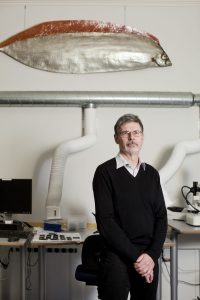
Contact: kirkegaardeskild@gmail.com
Eskild has more than 30 years of experience in fisheries management, with expertise on environmental management, fish stock assessment, research planning & evaluation, and administration. He served as former Chair of the Advisory Committee (ACOM) of the International Council for the Exploration of the Sea (ICES). Prior to that, he covered senior positions on fisheries management and research at the Technical University of Denmark, the Danish Institute for Fisheries Research, and the European Commission (DG-FISH). Furthermore, he worked as a consultant for the Marine Stewardship Council (MSC), and contributed part-time to the work of the Food and Agriculture Organization (FAO) and for the University of Copenhagen. He has been a member of scientific groups of several organizations, including ICES, the European Commission, FAO, and IUCN. He holds a Master’s degree in Marine Biology and Chemistry from the University of Copenhagen.
A.T. Charles, Professor, School of Business and School of the Environment, Saint Mary’s University, Halifax, Nova Scotia, Canada.
Contact: Tony.Charles@smu.ca
Richard Kenchington, Professor at the Australian National Centre for Ocean Resources and Security of the University of Wollongong, Australia.
Contact: rkenchin@uow.edu.au
Mr. Kenchington has published on ecosystem based management of coral reef, coastal and marine ecosystems. He works widely as a consultant and advisor to governments and international agencies. A marine ecologist, he studied crown of thorns starfish and large scale surveys of the Great Barrier Reef and was a foundation member of the planning and research staff of the Great Barrier Reef Marine Park Authority in 1978, retiring in 1999 as Executive Director of the Authority.
Jeppe Kolding, Associate Professor, Department of Biology, University of Bergen, Norway.
Contact: jeppe.kolding@bio.uib.no
Born 1955 in Copenhagen, Denmark, Dr. Jeppe Kolding holds a Dr. Scient. Degree in Fisheries from University of Bergen (1994), specializing on the ecology and exploitation of fish in fluctuating tropical freshwater systems. Employed by Department of Biology (http://www.uib.no/bio/en) of the University of Bergen, Norway from 1987-2000 and from 2002 to present, where he has taught and supervised more than 100 fishery students from 39 countries. In 2000-2001 he was employed by the Institute of Marine Research, Centre for Development Cooperation in Fisheries (http://www.imr.no/forskning/bistandsarbeid/en ) where he worked with the R/V Dr. Fridtjof Nansen programme. He has lived and worked several years in various African countries and has experience from shorter term engagements in more than 25 developing countries all over the world. Primary research interest is fish stock assessment, ecology and management of small-scale tropical fisheries, with particular experience from inland fisheries. Some of his works and publications can be found at:http://uib.academia.edu/JeppeKolding
Mitsutaku Makino, Professor, Atmosphere and Ocean Research Institute, University of Tokyo.
Contact: mmakino@aori.u-tokyo.ac.jp
MAKINO Mitsutaku, M.Phil. (Cambridge), M.A., Ph.D.(Kyoto), is a professor of the Atmosphere and Ocean Research Institute (AORI), University of Tokyo. He is specializing in ocean policy sciences, including the fisheries management and ecosystem conservation. He is participating to many international ocean policy science activities including the PICES Human Dimension Committee (https://meetings.pices.int/members/committees/HD). He is also contributing to Japanese domestic marine policy measures such as the Shiretoko World Natural Heritage management, marine protected area policy, marine biodiversity conservation strategy, integrated coastal management planning, etc.
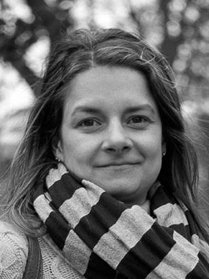 Daniela Diz, Bicentennial Associate Professor at the Lyell Centre, Heriot-Watt University, United Kingdom.
Daniela Diz, Bicentennial Associate Professor at the Lyell Centre, Heriot-Watt University, United Kingdom.Contact: D.Diz@hw.ac.uk
Michel J. Kaiser, Professor of Marine Conservation Ecology at the School of Ocean Sciences, Bangor University.
Contact: michel.kaiser@bangor.ac.uk
Michel Kaiser is the Professor of Marine Conservation Ecology at the School of Ocean Sciences, Bangor University. He is an independent Member of the Joint Nature Conservation Committee, the UK Marine Science Coordination Committee, and he chairs the Seafish Industry Authority’s Science Advisory Group. He co-convened the 6th World Fisheries Congress in 2012. After gaining his Ph.D. in 1991, he joined CEFAS to lead research on the effects of human activities (fishing and aquaculture) on the marine environment. He joined Bangor University in 1998 where he has expanded these interests to encompass social and economic consequences of different approaches of managing fishing activities. Michel was awarded a D.Sc. in 2003 in Marine Biology, and was awarded the Fisheries Society of the British Isles (FSBI) medal in 2004 for his contribution to fish and fisheries research. He was awarded a personal Chair in Marine Conservation Ecology in 2006. He has authored over 180 peer reviewed publications and has written or edited 5 books.
His current research focuses on techniques to achieve sustainable use of the marine environment, with a particular emphasis on developing techniques to minimize ecological impacts of fisheries and aquaculture, and research to underpin the appropriate use of marine protected areas. The latter focuses on recovery and dispersal dynamics in seabed communities and integration of spatial social and economic valuation of marine biodiversity. His research group provides scientific advice to the Welsh Government and the Isle of Man Government.
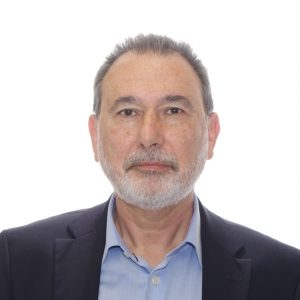
Ernesto Peñas Lado, Director (retired), European Commission, DG MARE.
Contact: ernestopenas@gmail.com
Ernesto Peñas Lado is a marine biologist by training and worked on marine research for 10 years. He was an official of the European Commission where he worked 30 years on the development of the EU’s Common Fisheries Policy (CFP). Ernesto retired from the EU as a Director in December 2018. Currently he works as an advisor to FAO and other institutions related to the conservation and management of ocean resources.

Jason S. Link , Senior Scientist, NOAA.
Contact: jason.link@noaa.gov
Dr. Jason S. Link is the Senior Scientist (ST) for Ecosystem Management with the National Oceanic and Atmospheric Administration’s (NOAA) National Marine Fisheries Service (NMFS). In this role, Dr. Link leads approaches and models to support development of ecosystem-based management plans and activities throughout the agency, serving as the agency’s senior-most authority on ecosystem science. Dr. Link has written several books and book chapters on the topic of Ecosystem-based Fisheries Management, has written over 200 peer-reviewed publications, over 300 reports (~100 citable), has over 325 published abstracts, and has convened over 10 major international symposia and summits on marine ecosystem management, climate change impacts on marine ecosystems, and modeling-related topics. Dr. Link has been a champion of ecosystem science and ecosystem-based management, both as a discipline and as a practice, for resource management agencies in the U.S. and around the world, sitting on several international advisory boards and the editorial board of an international marine science journal. Dr. Link holds an adjunct faculty position at the School for Marine Science and Technology at the University of Massachusetts, is a fellow of the American Institute of Fishery Research Biologists, holds an executive leadership certificate from Harvard, and has received a Department of Commerce Bronze medal and the Fisheries Society of the British Isles Medal for significant advances in fisheries science.
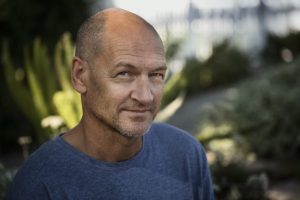 Hugh Govan, Adjunct Senior Fellow, University of the South Pacific (USP), School of Government, Development & International Affairs (SGDIA), Suva, Fiji / Adviser LMMA Network.
Hugh Govan, Adjunct Senior Fellow, University of the South Pacific (USP), School of Government, Development & International Affairs (SGDIA), Suva, Fiji / Adviser LMMA Network.
Contact: hgovan@gmail.com
Hugh is an Adjunct Senior Fellow at USP’s School of Government, Development & International Affairs (SGDIA) and has been an adviser to the Locally Managed Marine Area Network (LMMA) in Asia and the Pacific since its inception in 2000. Hugh has worked in the Pacific Islands as well as Central and South America and Europe where his work has spanned human rights, traditional medicine, cultural survival, sustainable forest livelihoods, renewable energy and aquaculture. His work with the LMMA Network has focused on developing community-driven approaches to resource management in the Pacific and from there into a global phenomenon, increasingly paying attention to factors such as rights, legislation and institutional support that might best ensure local fishers are empowered to sustain their livelihoods in coastal areas.
His free-lance work for national governments, regional and international agencies covers policy as well as practice from the community and sub-national level, to national and regional levels in the Island Pacific. He is the second author of the Pacific region’s overarching ocean policy, the Framework for a Pacific Oceanscape, has carried out reviews (including institutional capacity for resource management, the links between policy and staff duties at the sub-national level and agencies’ staffing and budgets) for the co-drafting of regional and some national Pacific Island policies on coastal fisheries. Current interests include improving local returns from high value fisheries (e.g. sea cucumber), ocean governance and public participation and the politics of international interest in the Pacific Islands ocean domain.
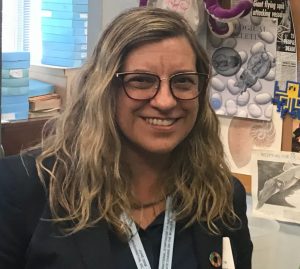
Mary Gasalla, Professor, University of São Paulo.
Contact: mgasalla@usp.br
Mary Gasalla is Professor of the University of São Paulo, in Brazil. She has been leading the Fisheries Ecosystems Laboratory at the Oceanographic Institute since 2005, where interdisciplinary research and capacity building in contemporary fisheries science have been a focus (www.labpesq.io.usp.br). Her projects include strategic analysis exploring indicators of sustainability, vulnerability and performance in fisheries systems, as well as grassroots interaction. Mary has a PhD in Oceanography, MSc in Biological Oceanography, and a BSc in Biology, and became a fisheries scientist after a 10-year position at a public research body in Brazil and several scientific opportunities at international institutions where she studied quantitative modelling but also social sciences and economics. Since then, she has been involved in scientific and local basis for ocean resource management, fisheries economics, marine biodiversity assessments, climate change, and fishing communities’ issues. She is currently developing and testing innovative approaches to integrate different fisheries issues in the context of complex marine social-ecological systems, and serving in international task-forces and regional networks.
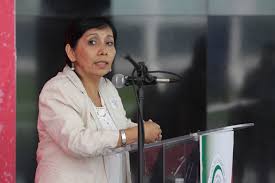
Silvia Salas, Professor, CINVESTAV Merida.
Contact: ssalas@cinvestav.mx
Dr. Silvia Salas is a professor at CINVESTAV Merida, where she oversees the fisheries laboratory at the Marine Resources Department. Silvia has been involved in several multidisciplinary projects around the following themes: bioeconomic assessment and management of small-scale fisheries (SSF); evaluation of the impact of anthropogenic activities in fisheries and fishing communities; risk and vulnerability assessment in fisheries; analysis of fishing strategies of small-scale fisheries, and value chain analysis and fisheries viability. She has participated in the development of management plans for several species and have developed different projects for fishing cooperatives in Mexico and has led several projects on the themes referred above. Silvia has participated as an expert in several meetings organized by FAO, WWF, WTO, OECD. Currently, she is a member of different networks including TBTI, RICOMAR, NAAFE, and IIFET. She is currently a board member of the NAAFE organization in the representation of Mexico and finished her period as a board member of IIFET as a representative of Latin America. Silvia had collaborated with local and international NGOs (COBI, EDF, CeDePesca), and currently is a member of the scientific advisory committee of OCEANA.
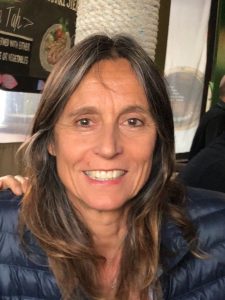
Merle Sowman, Associate Professor and Head of the Department of Environmental and Geographical Sciences, University of Cape Town (UCT).
Contact: merle.snowman@uct.ac.za
Merle Sowman is an Associate Professor and Head of the Department of Environmental and Geographical Sciences at the University of Cape Town (UCT), South Africa. Her main area of expertise is in the field of environmental governance and management with a particular focus on coastal and marine socio-ecological systems. Key areas of research include policy analysis in relation to coastal management and small-scale fisheries governance, balancing sustainability and social justice imperatives in marine conservation, and more recently, community-based adaptation planning in relation to climate change.
Over the years, Merle has been involved in a diverse range of interdisciplinary and collaborative research projects in various contexts but mainly southern Africa. Some examples include exploring models of governance across a range of natural resource sectors in sub-Saharan Africa, developing technical guidelines for integrating human dimensions into Marine Protected Area planning and management, environmental and socio-economic impacts of IUU fishing in Africa, and developing and applying a community-based vulnerability assessment tool to support adaptation planning in the context of climate change in the BCLME region. She has also designed, facilitated and lectured on several short courses on topics ranging from Tools for Environmental Management, Integrated Coastal Management and Implementation of the Voluntary Guidelines for Small-scale Fisheries. She was a member of the National Task Team that developed a new small-scale fisheries policy for South Africa and has served on a number of international committees and expert consultations for UN Food and Agricultural Organization. She is an Academy member of Future Earth Coast.
Senior Advisers
The Senior Advisors are former members of FEG that have been asked by the FEG Bureau, and have kindly agreed, to continue their collaboration with FEG after the end of their membership.
Annadel S. Cabanban
Contact: annadel.cabanban@yahoo.com.sg
Member 2008-2015
Ms Cabanban is an ichthyologist whose professional experience in Southeast Asia spanned the academe, international civil service, and environmental advocacy. She is a member of the International Society for Reef Studies and the Survival of the Species Group – Groupers and Wrasses, IUCN. She is the Regional vice Chair for the Commission on Ecosystem Management, IUCN. She is a graduate of Silliman University and University of the Philippines and James Cook University, Australia. Ms Cabanban has conducted basic and applied research on coral reef fishes and demersal fishes with students at Silliman University, Philippines and University Malaysia Sabah, Malaysia (1979 to 2006). She coordinated and assisted in the implementation of two regional projects of the United Nations Environment Programme (1994-1996; 2002). She became more involved in environmental advocacy in 2006 with two international non-governmental organizations in addressing transboundary environmental issues, namely overfishing and coastal and marine habitat destruction, in the Sulu-Sulawesi Marine Ecoregion. After working for 14 years in Malaysia and Thailand, she returned to the Philippines in 2008 to start a private enterprise in marine resources management and to continue working with Conservation International, Philippines in support of the implementation of the Sulu-Sulawesi Marine Ecoregion Conservation Plan.
Hazel Oxenford, Professor of marine ecology and fisheries. Centre for Resources Management and environmental Studies (CERMES), University of the West Indies, Cave Hill Campus, Barbados.
Contact: hazel.oxenford@cavehill.uwi. edu
Member 2008-2015
Dr Hazel Oxenford has been in Barbados for over 30 years and is currently Professor of Marine Ecology and Fisheries at the University of the West Indies, on the Cave Hill Campus in Barbados. She is a graduate of Exeter University, UK and obtained her PhD in fisheries science from the University of the West Indies in 1985. She has extensive Caribbean research, teaching and consulting experience. Her research interests are primarily in applied fisheries biology, coral ecology and management of oceanic pelagic and coral reef species in Caribbean SIDs, with over 100 publications in the scientific and technical literature. She has served on the Board of Directors of the Gulf and Caribbean Fisheries Institute (GCFI) (1987-2005); was a Site Director for the Caribbean Coastal Marine Productivity Programme (CARICOMP) (1991-2008); a Technical Committee Member of the CARICOM Fisheries Resource Assessment and Management Programme (CFRAMP) (1995-99); a member of the Steering Committee for the Caribbean Large Marine Ecosystem (CLME) project for large pelagics and for flyingfish; an ad hoc reviewer for many international journals and associate editor for the Bulletin of Marine Science (2012-2015); and serves on a number of national committees for the Government of Barbados including: the National Inter-Sectoral Committee (NIC) for the Caribbean Large Marine Ecosystem (CLME) project; National Commission on Sustainable Development; Appointed Chair (2002-03) / Member (2006-present) of the Fisheries Advisory Committee; Appointed Member of the Working Group on Biodiversity (2005-present); and Appointed Member of the CITES Management Authority (2005-present).
Publications by Hazel Oxenford
Qisheng Tang, Professor. Yellow Sea Fisheries Research Institute Chinese Academy of Fishery Sciences (CAFS), China.
Contact: ysfri@public.qd.sd.cn
Member 2008-2015



